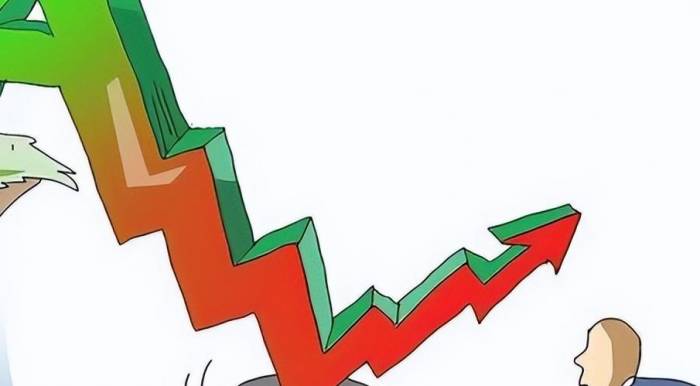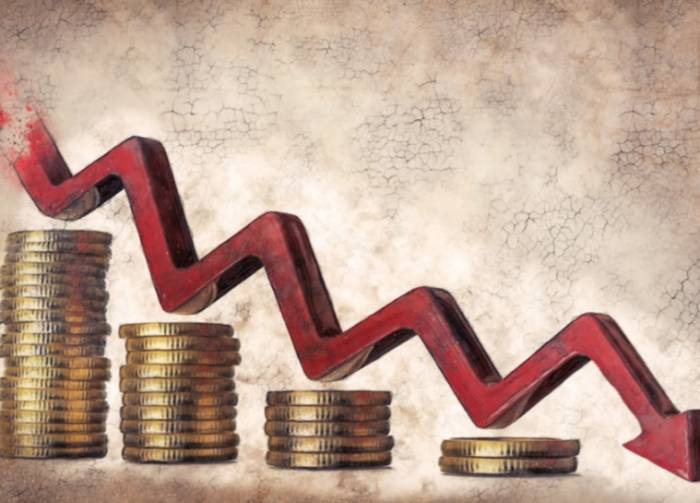On July 26th, A-shares ended their consecutive decline, with nearly 4,500 individual stocks rising in both markets. Analysts believe that the successful convening of the Third Plenary Session is expected to elevate market expectations for reform, enhancing the market's risk appetite from a medium to long-term perspective, and some industries related to the reforms discussed at the Third Plenary Session may be catalyzed by favorable developments.
On July 26th, A-shares concluded a four-day losing streak, with all major indices turning positive. By the close, the Shanghai Composite Index edged up by 0.14%, closing at 2,890.90 points. The Shenzhen Component Index rose by 1.45%. The ChiNext Index and the STAR 50 Index increased by 0.92% and 0.84%, respectively.
That day, nearly 4,500 stocks rose in the Shanghai and Shenzhen markets, while 746 fell. The combined turnover for both markets reached 606.1 billion yuan.
In fact, A-shares had been falling continuously during the week of July 22nd to July 26th. On July 22nd, the Shanghai Composite Index slightly declined by 0.61%. The following day, the drop expanded to 1.65%. On July 24th, the downward trend continued, with the Shanghai Composite Index barely holding above 2,900 points, ultimately closing at 2,901.95 points. On July 25th, the Shanghai Composite Index fell again by 0.52%. On July 26th, A-shares finally stopped the decline and turned positive, but remained below the 2,900-point mark.
"The recent consecutive declines in A-shares were mainly influenced by sentiment and capital flows. When the market lacks continuous large capital inflows, it lacks incremental funds to maintain the market surface, coupled with investors' unfulfilled expectations for short-term benefits, leading to the recent downturn," said Hu Mohan, fund manager at Mingze Investment.
The recently concluded Third Plenary Session of the 20th Central Committee of the Communist Party of China has been a recent market focus. Many industry insiders have expressed that, in the short term, the impact on A-shares is limited. However, historically, the Third Plenary Session usually focuses on medium to long-term reform issues, providing a forward-looking guidance framework for the development of key areas, bringing profound impacts on the long-term development of the macroeconomy and the capital market. After each important meeting, A-shares have shown significant long-term gains and a clearer upward trend.
"Looking at the meeting communique, it systematically deploys further comprehensive deepening of reforms and clearly states the goals and timelines for achieving comprehensive reforms to advance Chinese-style modernization, proposing different reform directions from both the supply and demand sides," said Zhang Chi, Chief Strategy Analyst at Guojin Securities Research Institute.
Nearly 4,500 stocks rose on July 26th. After the opening of A-shares, the Shanghai Composite Index moved strongly upward but quickly retreated, and then rose again at the end of the day, ending the four-day losing streak for the week. By the close, the Shanghai Composite Index closed at 2,890.90 points, edging up by 0.14%. The Shenzhen Component Index rose by 1.45%. The combined turnover for both markets reached 606.1 billion yuan.From a sector perspective, out of the 31 first-level industries in the Shenwan classification, 28 industries experienced gains. Home appliances led the rise with a 5.75% increase. Defense and military rose by 3.64%, while automobiles, nonferrous metals, and machinery equipment all saw gains exceeding 2%. The smaller gains were in the pharmaceutical and biological sector, which rose slightly by 0.16%, and the transportation sector also increased by 0.20%.
The banking sector, however, saw a significant decline. Wind data shows that the banking sector fell by 1.48% on the day. Out of all the constituent stocks, only two rose. Lanzhou Bank and Xi'an Bank rose by 0.45% and 0.31%, respectively. All other bank stocks fell. China Construction Bank, Shanghai Pudong Development Bank, and Postal Savings Bank of China all saw declines exceeding 2%. In addition, public utilities and food and beverage sectors fell by 0.59% and 0.03%, respectively.
Rongzhi Investment Fund Manager Xia Fengguang believes that the main negative factor in the current market is the lack of funds, indicating that market sentiment and risk appetite are at a very low level. "This is also one of the important characteristics of the bottom. The A-share market may still have fluctuations in the future, but in the medium term, it is a period with high cost-effectiveness."
The performance of the A-share market this week may have been unexpected to some investors. On July 18, 2024, the third plenary session of the 20th Central Committee of the Communist Party of China just concluded. The meeting focused on further comprehensively deepening reform and promoting the issue of Chinese-style modernization, making overall arrangements for further comprehensively deepening reform around Chinese-style modernization.
Some investors expected this important meeting to bring direct benefits to the A-share market, but in fact, looking back at the impact of past Third Plenary Sessions on the A-share market, the short-term impact is very limited.
"Specifically, after each important meeting, the A-share market has seen a significant increase in the long term, and the upward trend is relatively clear. In the year, three years, and five years after the last four Third Plenary Sessions, the average increase of the Wind All A was 29.53%, 49.47%, and 45.23%," said Dong Zhongyun, Chief Economist of AVIC Securities.
"Usually, the role of the Third Plenary Session is to study economic reform, not to serve the stock market directly," Liu Hong, Investment Manager of Tongwei Investment, believes, "This meeting did not have short-term strong stimulus policies, so market expectations were disappointed. In addition, stock market fluctuations are affected by many factors, and the economy is only one of them. Even if there are expectations of significant changes in reforms across various industries, they are all long-term impacts and will not change the stock market ecology in the short term. So investors should not expect the meeting to immediately drive up the stock market."
Huafu Securities stated that the overall impact of this Third Plenary Session on the stock market is neutral, and there has not been a particularly obvious regular change in the structural style of the A-share market in the short term. The impact on the industry level is relatively more significant, and some industries related to the Third Plenary Session reforms may be stimulated by favorable policies.
"Combined with the current market environment of A-shares, the successful convening of the Third Plenary Session is expected to raise market reform expectations and enhance market risk appetite from a medium to long-term perspective," said Haitong Securities.
Zhejiang Securities Chief Economist Li Chao believes that the capital market is highly related to the economy, and a stable and active capital market is conducive to investors and the whole society to better establish confidence and expectations for economic development. With further repair of market valuation and sentiment, investment attractiveness will increase further. Combined with the policy level's active resolution of the current main contradictions, it is expected that investor confidence will be steadily boosted subsequently.Where are the long-term investment opportunities?
The "Decision of the Central Committee of the Communist Party of China on Further Comprehensively Deepening Reform and Promoting Chinese-Style Modernization" (hereinafter referred to as the "Decision") contains multiple references to the capital market, mainly including: improving the basic systems that promote the standardized development of the capital market, perfecting the functions of the capital market that coordinate investment and financing, preventing risks and strengthening supervision, promoting the healthy and stable development of the capital market, supporting long-term capital to enter the market, improving the quality of listed companies, strengthening the supervision of listed companies and delisting systems, establishing long-term mechanisms to enhance the inherent stability of the capital market, improving the regulatory mechanism for the behavior of major shareholders and actual controllers, improving the dividend incentive and restraint mechanism for listed companies, improving the investor protection mechanism, promoting the alignment of regional equity market rules and standard unification, and orderly expanding the opening up of the capital market to the outside world.
CICC believes that the "Decision" reflects full attention to the construction of the capital market. The capital market is an important link in "deepening financial system reform". Since the central financial work conference last year proposed to "better play the role of the capital market as a hub", the capital market has focused on the reform and improvement of the system and mechanism, and has introduced a series of reform measures represented by the new "nine articles".
"The 'Decision' passed by the Third Plenary Session of the Party and the latest deployment of the China Securities Regulatory Commission (CSRC) have further clarified the direction for the development of new quality productive forces, and at the same time, have opened up new space for the capital market to better serve new quality productive forces. This is of great significance for stabilizing market expectations and effectively enhancing market vitality, efficiency, and attractiveness," said Li Chao, Chief Economist of Zheshang Securities.
On July 19, when the CSRC conveyed and studied the spirit of the Third Plenary Session of the 20th Central Committee of the Party, it stated: closely focusing on promoting Chinese-style modernization as the central task, firmly grasping high-quality development as the hard truth of the new era, highlighting strong foundation and strict supervision, and adhering to reform to assist stability, promote development, optimize services, and strengthen the team, resolutely pushing forward the comprehensive deepening of capital market reform. In particular, it pointed out, "further enhancing the inclusiveness and adaptability of the capital market to technological innovation, cultivating and expanding patient capital, and doing a good job in the financial 'five major articles', guiding more resource elements to gather towards new quality productive forces."
Lu Zhe, Chief Economist of Founder Securities, said, "As a response to the new round of technological revolution and industrial revolution, 'new quality productive forces' will cultivate new investment opportunities and growth points in the capital market, brew medium and long-term stock market growth momentum, and boost the medium and long-term risk preference of funds."
After the heavy tone, what investment opportunities can the capital market explore?
Li Chao suggests paying attention to three major directions of the capital market. First, high dividend bonus "safe" assets; second, the rise in both quantity and price of upstream resource products; third, pay attention to the growth stocks in new quality productive forces, especially the "future industry" corresponding to the nine major tracks.
"After the convening of the Third Plenary Session of the Party, the landing of uncertainty may drive the decline of risk-free yield, which may be beneficial to the growth sector and needs to be paid close attention to," Li Chao said.
CICC stated that the "Decision" highlighted the important position of innovation in high-quality development, placing the development of new quality productive forces and the deep integration of the real economy and the digital economy in a prominent position, and clearly proposed to pay attention to new scientific and technological fields such as "new generation information technology, artificial intelligence, aerospace, new energy, new materials, high-end equipment, biomedicine, quantum technology". In terms of the mechanism and system of scientific and technological innovation, the "Decision" proposed to give scientific and technological innovation greater autonomy, stimulate innovation vitality, and attract more scientific and technological talents.Galaxy Securities advises investors to focus on eight thematic investments: First, investments that promote the acceleration of the development of new quality productive forces and enhance investment value; second, state-owned enterprise reform is an important part of economic system reform, and central and state-owned enterprise reform themes are expected to benefit; third, the pace of Chinese enterprises going global is expected to accelerate, increasing related investment opportunities; fourth, the new energy theme may benefit from green and low-carbon development; fifth, the defense and military industry sector may see a valuation repair; sixth, the large consumer theme may benefit; seventh, it is worth paying attention to leading enterprises in the financial sector; eighth, pay attention to the phased trading opportunities in the real estate market.
"The Third Plenary Session sets China's medium and long-term economic development plan, which affects the medium and long-term trend of A-shares. We need to analyze more about the future development focus of China's economy, find industries that will continue to be supported by policies, and then make corresponding investment layouts," said Hu Mohan. In his view, the Third Plenary Session can uncover four investment main lines: new quality productive forces, state-owned enterprise reform, modern service industry, and national defense security. Xia Fengguang is more optimistic about the technology sector, due to high-level positioning, policy support, severe undervaluation, and a clear industrial outlook.






























Comments
Join the discussion